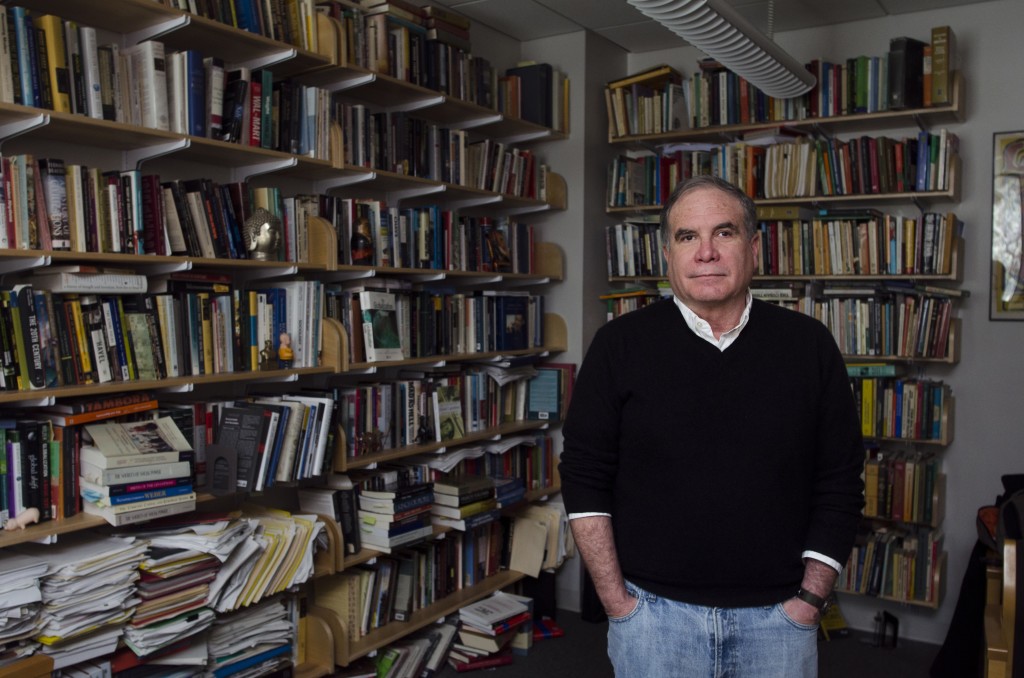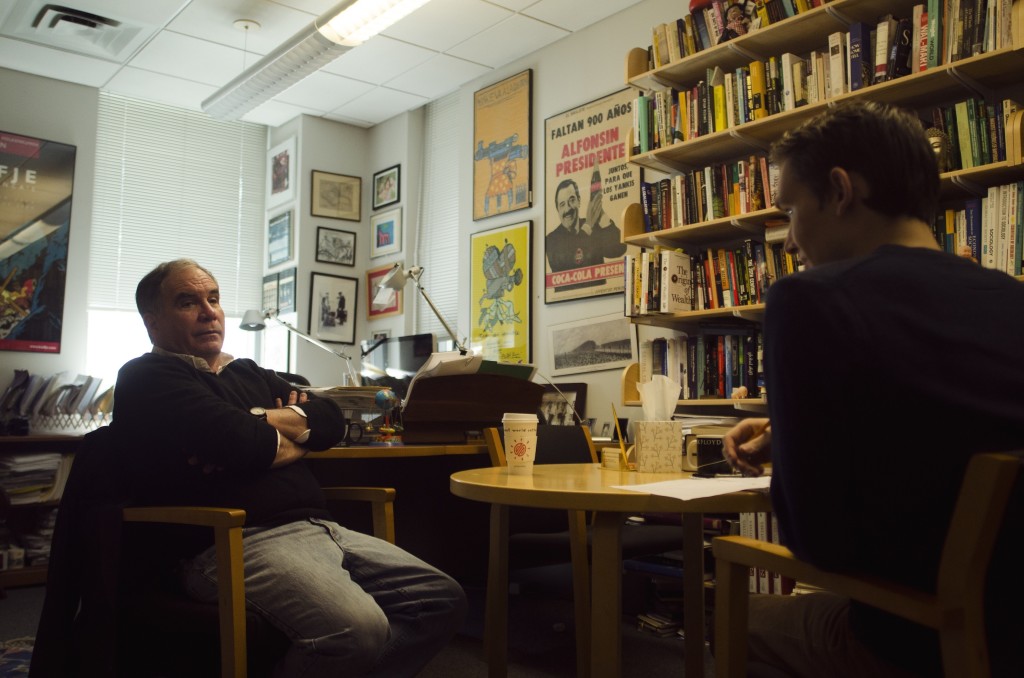Next time you have a meal in one of Princeton’s residential colleges, try and see if you can figure out where the components of your food came from and what transportation, energy, and labor systems were involved in creating, assembling, and delivering its ingredients. Barring a long conversation with a dining services operations manager and follow-up calls to a variety of corporations, the only thing you will really be sure about concerning your General Tso’s chicken is that it did not come from China. Yet understanding the complex processes that put food on the table across the world is vital to our ability to both benefit from modern globalization and at the same time minimize the systemic risk associated with the interconnected world.
To learn more about current efforts to strengthen our comprehension of globalized networks, I had the opportunity to speak with Princeton’s Miguel Centeno, a professor in the sociology department, about current multi-disciplinary efforts to understand these phenomena.

Photo by Mark Zhang
In his long career in teaching and research, Centeno has worked to understand forms of organizational control and influence, particularly in Latin America, and is in the process of publishing a book about the roles of institutions during war. However, to match a curiosity as wide in range as the subjects of the books on his overflowing shelves, in recent years he has expanded his interest in globalization to the aptly named field of complexity, which examines the intertwined networks of global and local systems.
Centeno compares our state of knowledge in the area to having “a massive factory” in some future period in which “no one remembers how the factory runs,” just that “stuff goes in and stuff goes out.” The problem with not understanding this machine is that, paraphrasing Charles Perrow in Normal Accidents, one can create systems in which “failure is almost inevitable” because they are so tightly coupled and complex. The most prominent example of such a catastrophe is the financial crisis of 2007-08, which began as a housing crisis in one country but through systems of interconnected markets and obligations caused a near-collapse in global banking.
With experts in multiple disparate fields such as agriculture, energy, finance, information security, and politics being needed to even begin to understand such systems, Centeno spearheaded the development of the Research Community in Global Systemic Risk as part of the Princeton Institute for International and Regional Studies (PIIRS), aiming to foster research collaboration, study by both scholars and students, and classes and seminars on topics in the field. Eventually, he and his colleagues hope to be able to anticipate and be effectively respond to massive systemic breakdowns in the production and distribution of important resources.
While such unexpected large-scale catastrophes in food availability have not occurred in recent years, historical examples still demonstrate the outsized role of transportation, communication, and political systems, and not simply agricultural production, in the food supply; for example, during the famous mid-nineteenth century Irish potato famine, the island continued to export wheat even as its people starved or fled. In more recent years, the United States, Canada, and Western European nations have developed a remarkable degree of self-sufficiency. Although malnutrition remains a severe problem, for advanced countries a disruption in foreign food supply will affect luxuries such as kiwis or mangoes and not staples such as corn and wheat. Due in large part to the Green Revolution of the late 1960’s, countries in Latin America and Asia are also decreasing their nutritional reliance on imports, although the capital requirements to acquire materials from corporations such as Monsanto have strengthened the power of large landowners and increased inequality.
According to Centeno, by far the most vulnerable region is sub-Saharan Africa, which due to complex factors including chronic instability and corruption has not developed the capital or physical infrastructure required for large-scale farming, and relies on imports of wheat and subsistence farming to survive. Thus an external disruption in transportation or agriculture or a collapse in production of the cash crops such as bananas or mineral resources such as diamonds that these countries exchange for grain would cripple their ability to feed themselves. Closer to home, the United States territory of Puerto Rico only has a two week supply of food, so a prolonged crisis could necessitate direct federal intervention.
Although here in Princeton we are quite immune to food-related systemic risks, our lives are nevertheless deeply intertwined with potential problems in far-off countries. Through another Princeton project, Mapping Globalization, Centeno showed how a single cup of Starbucks Coffee could have inputs from as many as nineteen different countries, many in Latin America or Africa. While outside the over-caffeinated college population Starbucks is still a luxury, in the long run, global issues such as overfishing, climate change, and inefficient water use, themselves caused by not only agricultural production but also by energy, transportation, and financial concerns, may affect the domestic food supply in unpredictable ways.
Thus, while Princeton students themselves may not soon be affected by global system disruptions in the short-term, understanding these problems is both a pressing issue and an area of research that benefits from expertise in almost any conceivable field of study. The Global Systemic Risk project hopes to fund multiple junior projects, senior theses, and graduate dissertations across many disciplines.

Photo by Mark Zhang
The complexity of the subjects Centeno studies underline how incredible it is to be able to choose from a diverse array of food in the Orange Bubble by simply entering a cafeteria. Not surprisingly, rather than have a favorite food, the professor prefers different meals in different moods, whether it be a steak dinner or a kale salad with quinoa, a variety made possible by the very systems he studies. Most tellingly, Centeno “has been affiliated with the residential colleges for almost twenty years” and “find[s] the residential dining halls amazing,” because in essence they are marginally free for underclassmen on meal plans and permit a choice of “25 different combinations” without “doing any of the work.”
So while you sit in the dining hall trying to figure out where the food on your plate came from, in addition to arguing about the costs and quality of the available food, you can also appreciate the tremendous transportation, energy, water, labor, and agricultural networks that enable you to sample such an incredible nutritional cornucopia on a daily basis.

